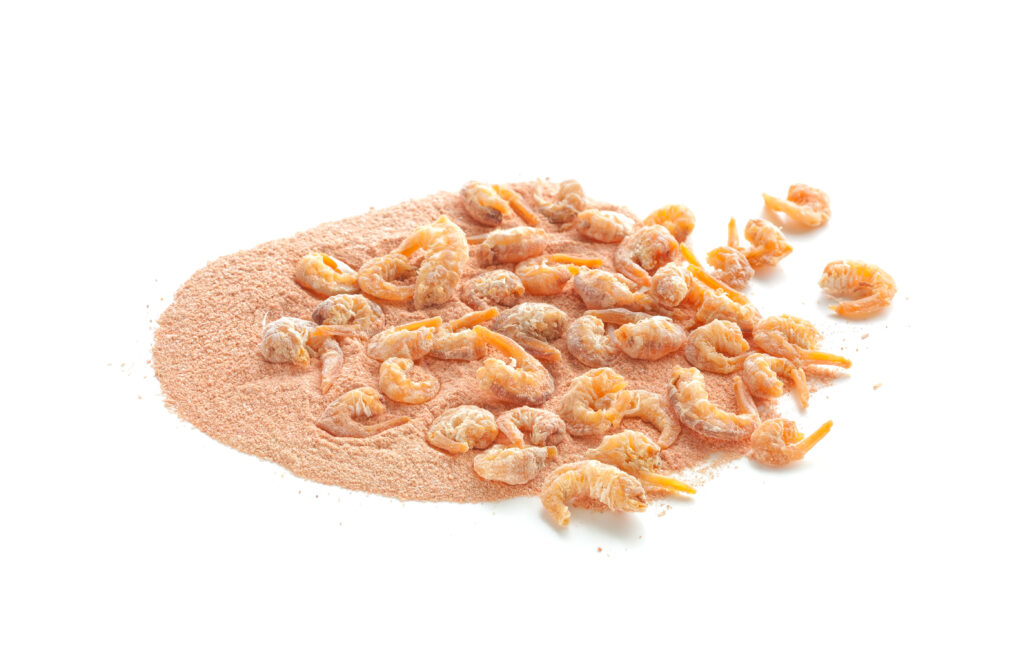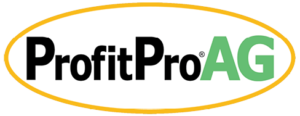Got Chitosan? Suppress Harmful Insects, Diseases the Natural Way

Chitosan might just be the most useful crop input you’ve never heard of. If you’re looking for ways to reduce chemicals and protect your crop from yield-robbing insects and disease, it’s time to get acquainted with this natural “super hero.”
“Chitosan works because of basic biology,” said Dennis Klockenga, a crops specialist with ProfitProAG.
Chitosan is biopolymer derived from chitin, one of the most abundant, natural materials on earth. Chitin is found in the exoskeletons of insects and creatures like shrimp. Chitin forms structures that strengthen cell walls in insect exoskeletons, crustacean shells and membranes in microbes like fungi.
“You know that crunching noise you hear when you step on certain insects, like wireworms?” Klockenga asked. “That’s the exoskeleton, and you can break it down. That’s what chitosan does.”
Chitosan is also remarkable for another reason. “Beneficial microbes that are helpful to agriculture don’t have chitin-based membranes, but harmful microbes do have chitin-based membranes,” Klockenga said. “That’s why chitosan is so powerful in crop production.”
This gives farmers a unique opportunity to harness the power of an enzyme called chitinase to suppress insects and diseases that can harm crops. More specifically, chitinases are a large, diversified category of enzymes that break down chitin, the world’s second-most prevalent polymer after cellulose.
ProfitProAG makes it easy to use chitosan. It’s applied in a liquid form that can be incorporated with starter fertilizer or foliar fertilizer.
“When you apply chitosan to your fields, this stimulates the plants and the biology in the soil to produce chitinase, which breaks down the membranes of harmful microbes and the exoskeletons of harmful insects like seed corn maggots and wireworms,” Klockenga said. “Suppressing insects and disease organisms this way helps you reduce the need for insecticides and fungicides.”
Chitosan is safe, non-toxic
Conduct a quick, online search, and you’ll find a wealth of studies in the scientific literature detailing the results of chitosan applications with plants. Studies show that chitosan can bolster plants’ defense systems against biological and environmental stresses, often outperforming synthetic chemicals. This, in turn, promotes more robust plant growth and yield potential.
Chitin and chitosan are natural compounds that are non-toxic and biodegradable. Various researchers and scientific review committees at federal government agencies have conducted extensive studies to determine the safety of chitosan. The substance is proven to be safe for people and the environment.
ProfitProAG makes it easy to apply chitosan in-furrow or in foliar feeding systems, thanks to BioImpact™+. “Chitosan is a key component of BioImpact+,” “Klockenga said. “It helps break down chitin for greater insect and disease suppression.”
This improves plant performance and vigor, plus it extends the growing season of your crops, since plants stay greener and healthier longer, he noted.
Environmental conditions influence the effectiveness of BioImpact+. “You need proper moisture levels and good oxygen levels in the soil, since moisture has a big impact on chitinase,” Klockenga said. “If it’s bone dry and there hasn’t been any rain for weeks, this will limit the product’s effectiveness.”
When conditions are favorable, however, it’s hard to beat the power of BioImpact+. “I saw this first-hand with one of our customers who needed to control flea beetles in his fields,” Klockenga said. “Where the grower was able to irrigate, the BioImpact+ worked well to suppress these pests.”
Recipe for Success offers simple, practical solutions
In some ways, chitosan follows the same principals as ProfitProAG’s fall residue management program, which harnesses the power of soil biology to break down organic materials, benefit crop production and potentially lower your crop input bills.
Crop residue management is phase I of ProfitProAG’s 3-Phase Recipe for Success:
- Phase I Residue Management. This “second harvest” focused on efficient breakdown of crop residue to improve soil health and boost nutrient retention/availability, nitrogen fixation, water infiltration, and carbon release to feed the crop during the growing season, while reducing residual insect and disease pressure. The key benefit is improved nutrient cycling from the crop residue, which can help lower your fertilizer bill.
- Phase II At-Plant. Jump start your yield, and get your crop off to a strong start with early-season plant health and vigor. Biological seed coatings and the right starter package supply key nutrients to seedlings and enhance plant health all season-long. “Putting an inoculant in-furrow when you plant is a good way to add more biology,” Klockenga said. Establishing healthy plants below and above ground is critical to maximizing the crop’s genetic yield potential. ProfitProAG’s seed coatings use biology, rather than chemicals, to help control crop disease and insect pests.
- Phase III In-Season. Help your crop stay green to the finish for maximum yield potential. This phase helps mitigate plant stress, which is critical when the reproductive phase of yield development begins. Foliar application of nutrients, energy and stress-reducing technology builds resilience and uniformity in a crop-production system. The end result is increased seed numbers, weight and nutrient density in grains. Forages show improved nutrient content, energy, taste, storability and reduced mycotoxins.
BioImpact+ and chitosan can play key roles in phases II and III of the Recipe for Success. “The Recipe for Success isn’t a cookie-cutter plan,” Klockenga said. “It’s tailored to your acres, whether you raise soybeans, corn, small grains, forages or cover crops.”
Want to know more about how BioImpact+, chitosan and the Recipe for Success can work for you? Contact us for more details.
Office – 507-373-2550 / info@profitproag.com
Dr. Jim Ladlie – 507-383-1325 / jladlie@profitproag.com
Dennis Klockenga – 320-333-1608 / dklockenga@profitproag.com
Tony Ritten – 715-501-0190 / tritten@profitproag.com
John Pernat – 920-285-2400 / johndpernat@gmail.com
